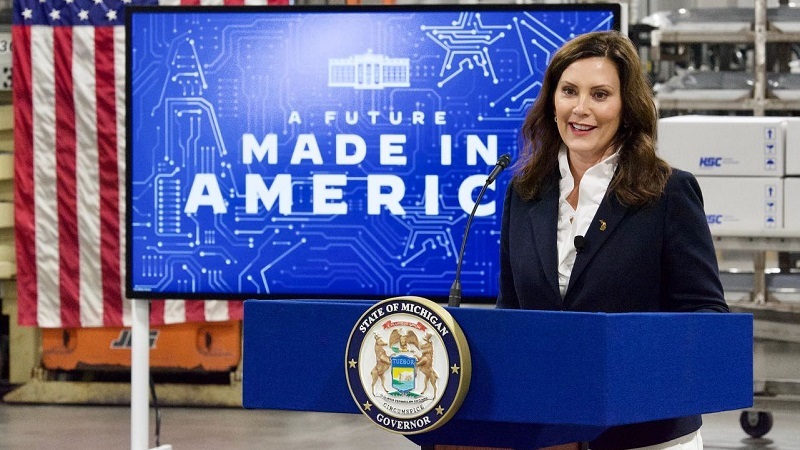Gov. Gretchen Whitmer, D-Mich., wants Michigan on the map for investments under CHIPS and Science Act. | facebook.com/GovGretchenWhitmer
Gov. Gretchen Whitmer, D-Mich., wants Michigan on the map for investments under CHIPS and Science Act. | facebook.com/GovGretchenWhitmer
Gov. Gretchen Whitmer, D-Mich., wants federal authorities to know Michigan has the workforce and is ready and willing to take on future projects stemming from the federal CHIPS and Science Act.
Whitmer recently wrote a letter to U.S. Secretary of Commerce Gina Raimondo to highlight how Michigan is well-suited for the job, according to a Sept. 16 news release.
"Here in Michigan, we know firsthand how important chips are to domestic manufacturing supply chain," Whitmer said in the release. "That is why I will continue to advocate for Michigan to be the premier destination for incoming investments from he CHIPS and Science Act. We have the hardworking people, storied past, and advantageous places to site big projects. We will move fast and compete with anyone to bring home every available resource from the CHIPS and Science Act. We put the world on wheels, built the arsenal of democracy, and now, we will work together to make sure Michigan is the place to build the future."
According to the release, the bipartisan CHIPS and Science Act is expected to not only create, but also protect, tens of thousands of jobs and lower costs for working families.
The release pointed to the "bold investments" the state secured in the past year, including Hemlock Semiconductor, KLA, Wacker, SK Siltron and Calumet Electronics. Combined, the companies are expected to create more than 1500 jobs in the state.
"The bipartisan CHIPS and Science Act will create and protect tens of thousands of jobs, bring supply chain from China to Michigan and help lower costs for working families on electronics, cars and so much more,” Whitmer said in the release.
Under the CHIPS and Science Act, $52 billion will be put toward incentives to boost domestic semiconductor research and production, $2 billion of which would be dedicated to "mature node" semiconductors which are used by automakers, in medical devices and agricultural machinery to name a few, according to the release.






 Alerts Sign-up
Alerts Sign-up